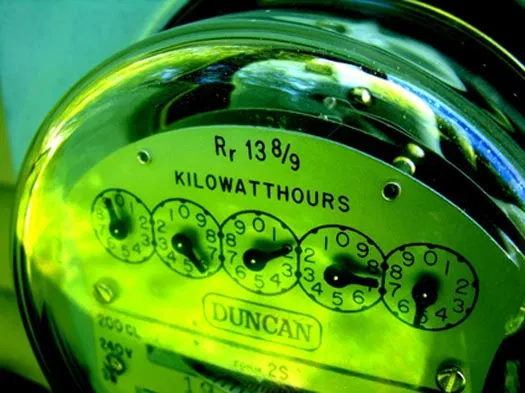
“Creativity is the power to connect the seemingly unconnected.”
William Plomer

6 Tips to Cut Electricity Bill by 75 Percent
There has been an ongoing global uproar about the need to reduce electricity waste. Given the limited amount of resources available for power production to many countries, we must all start looking for energy efficiency programs to reduce wasteful electricity consumption.
Even in the face of plentiful electricity supply, reducing your electricity consumption reduces your cost by a significant percentage while indirectly reducing the use of fossil fuels and greenhouse gas emissions. The rate of energy consumption in a home is heavily influenced by the type and use of household appliances. This article will teach you how to use your home's appliances and devices effectively to cut electric bill by 75 percent.
Having said that, here are 6 useful tips on how you can cut electric bill by 75 percent.
No credit card needed, no subscription, first 4 lessons free
Benefits of Cutting Your Utility Bill
Upgrade to a more energy efficient refrigerator.
One energy efficient home improvement you can do is upgrading to a new refrigerator.
It's worth noting that the energy required by a refrigerator is roughly halved every 15 years. This suggests that there is continual innovation in refrigerator manufacturing to produce machines that utilize less power.
Refrigerator coils and condensers have become more efficient with the advancement in technology.
The modern refrigerator is an energy saving system. It has smart features that allow you to modify the settings using your smart devices through Wi-Fi. Others can set a temperature and length of time they will run. When the refrigerator is not in use, it helps save energy.
Take it easy with your cooling appliances.
After a long day at work, it's refreshing to come home to a cold atmosphere in your room. It would be even better if you can sleep in the same condition after having your night bath. But all of this comes at a cost: a high electric bill.
Home cooling appliances such as air conditioners require a lot of power to operate. The compressor in the air conditioner, as well as the coils in the electric fan, use a lot of power to provide comfort. You do not have to cease using these appliances to reduce your electric consumption. It merely demands you to be cautious in their application and knowledge in energy efficiency programs.
Before leaving for work, turn off all fans and air conditioners. The amount of time these items operate while you are away will have a significant impact on your electric cost. Install a smart thermostat if you're concerned about returning home to a chilly environment or sleeping and waking in a cool room. This allows you to program when your air conditioner turns on and off.
Alternatively, you can use the electric fan instead of the air conditioner. Using electric fans in moderately hot weather and air conditioners in really hot weather will cut your electricity consumption. You will save money on power by using this method.

Turn off the lights.
You may not understand how important it is to always turn off your light bulbs when not in use until you notice the difference in your electricity bill. Non-LED bulbs, chandeliers, and colorful bulbs all use electricity. The power usage may be minimal at first, but it becomes significant if left for an extended period of time.
Turn off any unused lights when you are at work, sleeping, or away from home. Make it a habit in your home, and you'll notice a significant reduction in your electric bill - you can cut electric bill by 75 percent.
Install smart lighting systems that only turn on when they detect a human presence, or light bulbs that can be controlled by remotes, smart devices, or programmable features, if possible.
Switch off your computers.
Computer users often leave their gadgets turned on even while not in use. This is not an energy saving system, and most likely due to the ease with which they may access it anytime they want or because it has become a habit.
Computers today no longer need to boot for a long time before they can be used. As a result, leaving your computer on for convenience may be out of the question in terms of power savings. Computers, particularly desktops, require power to keep the cooling fans in the CPU running even when not in use. Furthermore, cooling systems consume a lot of electricity.
Even if you merely use a screen saver on your desktop, power is consumed. You might be surprised at how much electricity you've saved if you constantly turn off your laptops while they're not in use. If you're not going to be using your computer for an extended period of time, unplug it from the socket.
No credit card needed, no subscription, first 4 lessons free
Unplug unused appliances.
You may be interested to know that even when your appliances are turned off but plugged into a power source, they continue to consume a little amount of electricity. If your appliances are connected to a power source, you may accidentally turn them on and leave them running. This usually happens when several appliances use the same outlet at the same time.
A common example of this is when you have your TV set, stand fan, home theater, decoder, DVD player, and other gadgets/appliances plugged into a power outlet via an extension box.
When you turn on the electricity, all of your appliances may begin to run, even if they are not all required at the time. Unplugging items that will not be used during that time period is an energy efficient home improvement you can do to avoid wasting electricity.
Upgrade your old appliances.
Consider replacing some or all of your outdated appliances with newer models. If necessary, appliances such as a blender, microwave, television, air conditioner, heater, washer and dryer, and dishwasher should be replaced with newer models. There are newer types of these appliances that use less power.

Conclusion
Saving money on power requires some concessions. You may have to endure some discomfort or replace some of your home's equipment with updated models. These sacrifices will be well worth it in the long run - allowing you to cut electric bill by 75 percent.

